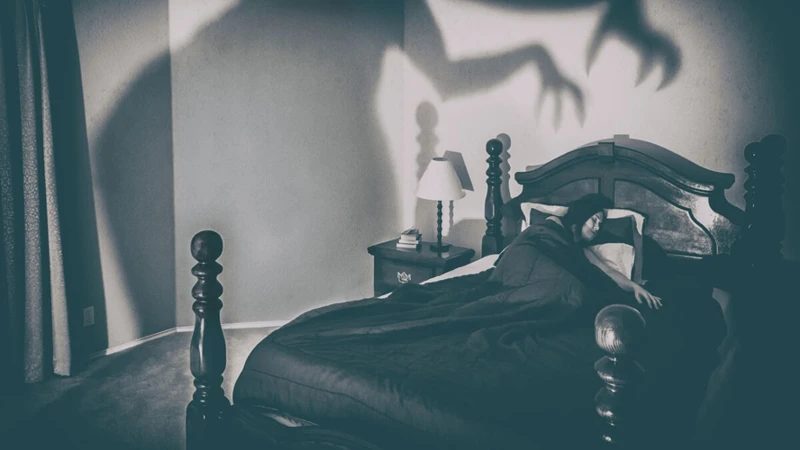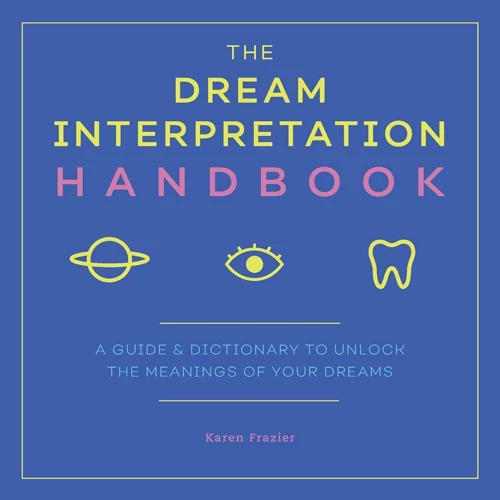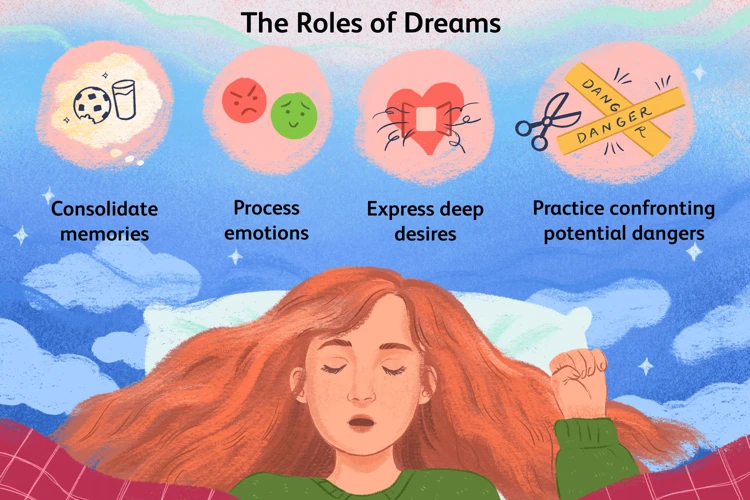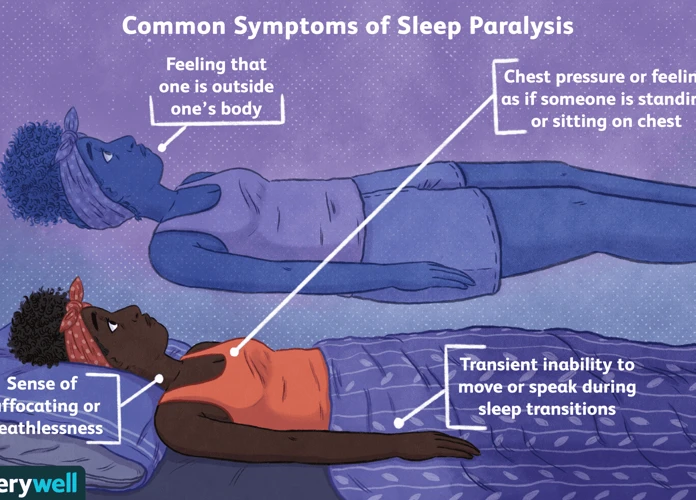Have you ever woken up from a deep sleep and found yourself unable to move or speak? If so, you may have experienced sleep paralysis. This mysterious phenomenon is often accompanied by hallucinations and a feeling of intense fear or pressure on the chest. Sleep paralysis can be a perplexing and terrifying experience, leaving many wondering if it is a sign of something more serious. In this article, we will delve into the world of sleep paralysis, exploring its definition, common symptoms, possible causes, when to seek medical help, treatment options, and strategies for prevention. So, grab a cup of tea and get ready to unravel the mystery of sleep paralysis.
Understanding Sleep Paralysis

Sleep paralysis is a fascinating and puzzling phenomenon that occurs during the transition between wakefulness and sleep. During this state, individuals find themselves temporarily immobilized, unable to move or speak. Sleep paralysis often lasts for a few seconds to a few minutes and is usually accompanied by vivid hallucinations and a sense of impending danger. These hallucinations can range from seeing shadowy figures to experiencing a feeling of being choked or suffocated. While the exact cause of sleep paralysis is still unknown, it is thought to be linked to disruptions in the sleep-wake cycle and abnormalities in brain chemistry. To better understand this mysterious condition, researchers have conducted numerous studies and experiments, exploring the intricate science behind sleep paralysis. To learn more about the science behind sleep paralysis, click here: exploring the science of sleep paralysis.
Definition of Sleep Paralysis
Sleep paralysis can be defined as a temporary inability to move or speak that occurs when an individual is transitioning between sleep and wakefulness. During this state, the brain and body experience a disconnect, where the mind becomes conscious but the muscles remain temporarily paralyzed. This often occurs during two specific stages of sleep: the hypnagogic state, which is when one is falling asleep, and the hypnopompic state, which is when one is waking up. The sensation of being unable to move or speak can be extremely distressing and frightening, as individuals may feel trapped within their own bodies. It is important to note that although sleep paralysis can be a terrifying experience, it is not considered a medical emergency or a sign of a serious underlying condition. To alleviate the distress that sleep paralysis can cause, understanding its definition is the first step towards discovering coping strategies and treatment options. To learn how to cope with sleep paralysis, click here: tips for coping with sleep paralysis.
Common Symptoms and Experiences
Common symptoms and experiences associated with sleep paralysis can vary from person to person, but there are several recurring themes reported by those who have experienced this phenomenon. One of the most prevalent symptoms is a temporary inability to move or speak, despite being fully conscious. This immobility can be accompanied by a sense of pressure on the chest or body, making it difficult to breathe. Hallucinations are also a common feature of sleep paralysis, with individuals often reporting seeing shadowy figures, hearing strange noises, or feeling a presence in the room. These hallucinations can be incredibly vivid and realistic, adding to the overall fear and distress experienced during an episode. Additionally, many individuals report feeling intense anxiety, fear, or a sense of impending doom during sleep paralysis episodes. It is important to note that while sleep paralysis can be a terrifying experience, it is generally not associated with any long-term physical harm. To explore various treatment remedies for sleep paralysis, click here: treating sleep paralysis with remedies.
Possible Causes of Sleep Paralysis

The causes of sleep paralysis can vary and are not entirely understood. Several factors have been associated with this phenomenon, including sleep disorders and disruptions, psychological and emotional factors, and certain medical conditions or medications. Common sleep disorders such as narcolepsy, insomnia, and sleep apnea have been linked to an increased likelihood of experiencing sleep paralysis. Additionally, disrupted sleep patterns, such as irregular sleep schedules or jet lag, can also contribute to the occurrence of sleep paralysis. Psychological and emotional factors such as stress, anxiety, and post-traumatic stress disorder (PTSD) may trigger or exacerbate episodes of sleep paralysis. Certain medical conditions such as migraines, epilepsy, and narcolepsy, as well as medications like antidepressants or those used to treat ADHD, may also play a role in experiencing sleep paralysis. It is important to note that the exact relationship between these factors and sleep paralysis is not fully understood, and further research is needed to unravel the complexities of this intriguing phenomenon.
Sleep Disorders and Disruptions
Sleep disorders and disruptions play a significant role in the occurrence of sleep paralysis. Various sleep disorders can contribute to the likelihood of experiencing sleep paralysis episodes. One such disorder is narcolepsy, a neurological condition where individuals experience excessive daytime sleepiness and sudden loss of muscle tone (cataplexy). Sleep paralysis is a common symptom of narcolepsy, often occurring as individuals transition between wakefulness and sleep. Another disorder associated with sleep paralysis is sleep apnea. Sleep apnea is characterized by interruptions in breathing during sleep, leading to frequent awakenings throughout the night. These awakenings can increase the chances of experiencing sleep paralysis episodes. Other sleep disruptions, such as irregular sleep schedules, jet lag, or consistently having inadequate sleep, can also contribute to the occurrence of sleep paralysis. By addressing and managing underlying sleep disorders and disruptions, individuals may be able to reduce the frequency of sleep paralysis episodes.
Psychological and Emotional Factors
Psychological and emotional factors play a significant role in the occurrence of sleep paralysis. Stress, anxiety, and sleep-related disorders such as insomnia and sleep deprivation are known to contribute to the frequency and intensity of sleep paralysis episodes. When individuals experience high levels of stress or anxiety, their sleep quality and patterns can be disrupted, leading to an increased likelihood of experiencing sleep paralysis. Additionally, individuals with mental health conditions such as depression and post-traumatic stress disorder (PTSD) may be more prone to experiencing sleep paralysis. The relationship between these psychological factors and sleep paralysis is complex and still not fully understood, but it is believed that the heightened emotional arousal and altered neurotransmitter activity in the brain may contribute to the occurrence of sleep paralysis episodes. If you’re looking for coping strategies to manage sleep paralysis related to psychological and emotional factors, you can find some helpful tips here.
Medical Conditions and Medications
Sleep paralysis can also be associated with certain medical conditions and medications. These factors can disrupt normal sleep patterns and increase the likelihood of experiencing sleep paralysis episodes. Some medical conditions that have been linked to sleep paralysis include:
- Narcolepsy: People with narcolepsy, a neurological disorder characterized by excessive daytime sleepiness and sudden bouts of sleep, are more prone to sleep paralysis.
- Sleep Apnea: Individuals with sleep apnea, a condition where breathing pauses during sleep, may experience sleep paralysis due to the breathing disruptions affecting their sleep quality.
- Mental Health Disorders: Conditions such as anxiety, depression, and post-traumatic stress disorder (PTSD) have been associated with sleep paralysis. The emotional and psychological factors involved in these disorders can contribute to sleep disruptions and the occurrence of sleep paralysis.
In addition to medical conditions, certain medications can also increase the susceptibility to sleep paralysis. These may include medications for the treatment of depression, ADHD, and certain sleep disorders. It is important to consult with a healthcare professional if you believe that your medications or medical conditions are contributing to sleep paralysis episodes. They can evaluate your situation and recommend appropriate adjustments to your treatment plan.
When to Seek Medical Help

If you experience sleep paralysis, it can be a distressing and frightening experience. While occasional episodes of sleep paralysis are generally considered normal and harmless, there are certain situations that may warrant seeking medical help. If you experience any of the following, it is recommended to consult a healthcare professional:
1. Frequent or recurring episodes: If you experience sleep paralysis on a regular basis, such as multiple times a week or more, it may be a sign of an underlying sleep disorder. Seeking medical help can help determine the root cause and provide appropriate treatment.
2. Severe anxiety or distress: If sleep paralysis episodes are causing significant emotional distress, anxiety, or fear, it is advisable to seek professional guidance. A healthcare provider can help you manage the psychological impact of sleep paralysis and provide coping strategies.
3. Associated physical symptoms: If sleep paralysis is accompanied by other concerning physical symptoms such as chest pain, difficulty breathing, or muscle weakness, it may indicate an underlying medical condition that requires evaluation.
4. Interrupted sleep and daytime impairment: If sleep paralysis is interfering with your sleep quality or causing significant daytime impairment, such as excessive daytime sleepiness or difficulty functioning, medical intervention may be necessary to address the underlying sleep disorder.
5. Concurrent medical conditions or medication use: If you have any pre-existing medical conditions or are taking medications that may contribute to sleep paralysis, it is important to consult with a healthcare provider to assess potential interactions or side effects.
Remember, seeking medical help is always a personal decision based on your individual circumstances. It is important to trust your instincts and consult a healthcare professional if you have any concerns or questions about your sleep paralysis experiences.
Treatments and Coping Strategies

When it comes to dealing with sleep paralysis, there are various treatments and coping strategies that can help alleviate its symptoms and minimize its occurrence. Sleep hygiene and routine play a critical role in managing sleep paralysis. Establishing a regular sleep schedule, maintaining a comfortable sleeping environment, and practicing relaxation techniques such as deep breathing or meditation can promote better sleep quality. Additionally, relaxation and stress reduction techniques such as yoga or mindfulness exercises can help reduce anxiety and prevent triggering sleep paralysis episodes. In some cases, medical interventions may be necessary, such as prescribing medications to regulate sleep patterns or referring individuals to sleep specialists for further evaluation and treatment. Seeking support from mental health professionals can be beneficial in addressing any underlying psychological factors contributing to sleep paralysis. It is important to remember that finding the most effective treatment or coping strategy may require some trial and error, as what works for one individual may not work for another. By exploring different approaches and working closely with healthcare professionals, individuals can find relief and improve their overall sleep experience. For more detailed tips on coping with sleep paralysis, check out our article here.
Sleep Hygiene and Routine
Maintaining good sleep hygiene and establishing a consistent sleep routine are essential in managing and reducing the occurrence of sleep paralysis. Sleep hygiene refers to the practices and habits that promote healthy and restful sleep. Here are some key tips to improve sleep hygiene:
1. Stick to a regular sleep schedule: Go to bed and wake up at the same time every day, even on weekends. This helps regulate your body’s internal clock and promotes a more consistent sleep pattern.
2. Create a relaxing bedtime routine: Engage in activities that help you unwind and prepare for sleep. This could include reading a book, taking a warm bath, or practicing relaxation techniques like deep breathing or meditation.
3. Create a sleep-friendly environment: Make sure your bedroom is cool, dark, and quiet. Use curtains or blinds to block out any external light, and consider using earplugs or a white noise machine to drown out any disruptive noises.
4. Limit exposure to electronic devices: The blue light emitted by smartphones, tablets, and computers can interfere with your sleep. Avoid using electronic devices for at least an hour before bed, and consider using apps or settings that reduce blue light emissions.
5. Avoid caffeine, nicotine, and alcohol: These substances can disrupt sleep patterns and contribute to sleep disturbances. Limit your consumption of caffeinated beverages and avoid smoking or drinking alcohol close to bedtime.
6. Exercise regularly: Engaging in regular physical activity can promote better sleep. However, it is best to avoid intense exercise close to bedtime, as it can stimulate your body and make it harder to fall asleep.
By implementing these strategies, you can improve your sleep hygiene and create a consistent sleep routine that promotes better sleep quality and reduces the likelihood of experiencing sleep paralysis. Additionally, if you’re interested in discovering more tips and coping strategies for sleep paralysis, you can find them here: tips for coping with sleep paralysis.
Relaxation and Stress Reduction Techniques
Relaxation and stress reduction techniques can be beneficial for managing sleep paralysis and minimizing its occurrence. These techniques aim to promote relaxation, reduce anxiety, and create a calm state of mind before sleep. Some effective techniques include:
1. Deep breathing exercises: Practicing deep breathing can help calm the mind and relax the body. Take slow, deep breaths in through the nose, hold for a few seconds, and exhale slowly through the mouth. This technique can help reduce stress and promote a sense of calmness.
2. Meditation and mindfulness: Engaging in meditation or mindfulness exercises can help calm the mind and prevent intrusive thoughts that may contribute to sleep paralysis. Focus on the present moment, let go of worries, and cultivate a state of relaxation and acceptance.
3. Progressive muscle relaxation: This technique involves systematically tensing and then relaxing different muscle groups in the body. Start from your head and work your way down to your toes, focusing on each muscle group for a few seconds before releasing the tension. This can help release physical tension and promote overall relaxation.
4. Aromatherapy: The use of calming scents, such as lavender or chamomile, can aid in relaxation and promote better sleep. Consider using essential oils or sprays in your bedroom or during a pre-sleep routine.
5. Yoga or gentle stretching: Engaging in gentle stretching or practicing yoga before bedtime can help release physical tension and promote relaxation. Incorporate poses or stretches that focus on deep breathing and relaxation, such as child’s pose or corpse pose.
Remember, it’s essential to find the techniques that work best for you. Experiment with different methods and incorporate them into your bedtime routine to create a peaceful and stress-free environment conducive to good sleep. For more tips on coping with sleep paralysis, click here: tips for coping with sleep paralysis.
Medical Interventions
Medical interventions can be beneficial for individuals experiencing frequent or severe episodes of sleep paralysis. Here are some common medical interventions that healthcare professionals may recommend:
- Medications: In certain cases, doctors may prescribe medications to help regulate sleep patterns and reduce the likelihood of sleep paralysis episodes. This can include medications such as selective serotonin reuptake inhibitors (SSRIs), which can help manage underlying anxiety or depression that may contribute to sleep paralysis. In some instances, doctors may also prescribe medications typically used to treat narcolepsy, such as modafinil or sodium oxybate, to address sleep disruption.
- Referred Specialists: Depending on the underlying cause or associated medical conditions, a healthcare professional may refer individuals to specialists who can provide additional guidance and treatment. This may include sleep specialists, neurologists, or psychologists who can address specific aspects of sleep paralysis and its management.
- Therapies: Certain therapeutic approaches, such as cognitive-behavioral therapy (CBT), may be used to address the psychological factors that contribute to sleep paralysis. CBT can help individuals identify and manage anxiety or stress-related triggers, develop coping strategies, and improve overall sleep quality.
- Continuous Positive Airway Pressure (CPAP) Machine: For individuals with coexisting sleep apnea and sleep paralysis, a CPAP machine may be recommended. CPAP therapy involves wearing a mask over the nose or mouth during sleep to deliver a continuous stream of air pressure, thereby keeping the airways open and reducing the likelihood of sleep disruptions.
- Surgical Interventions: In rare cases where sleep paralysis is linked to specific anatomical issues, surgical interventions may be considered. This may include procedures to correct abnormalities in the upper airway, such as tonsillectomy or adenoidectomy.
It is important to note that the appropriate medical intervention can vary depending on an individual’s specific circumstances and underlying causes, and therefore it is crucial to consult with a healthcare professional for personalized advice and guidance. Although medical interventions can be helpful for managing sleep paralysis, they are typically utilized in conjunction with other coping strategies and lifestyle modifications to provide comprehensive and holistic care.
Preventing Sleep Paralysis
Preventing sleep paralysis can be challenging, but there are various strategies and lifestyle changes that may help reduce the occurrence of this unsettling phenomenon. Lifestyle changes such as maintaining a regular sleep schedule, practicing good sleep hygiene, and managing stress levels can play a significant role in preventing sleep paralysis. Creating a relaxing sleep environment, avoiding stimulants like caffeine and nicotine before bedtime, and engaging in regular exercise can also contribute to better sleep quality and reduce the likelihood of experiencing sleep paralysis. Additionally, practicing relaxation techniques such as deep breathing exercises or meditation before bed can help alleviate stress and promote a more restful sleep. By implementing these preventive measures, individuals may have a better chance of avoiding sleep paralysis and enjoying more peaceful nights of sleep.
Lifestyle Changes
- Establish a Consistent Sleep Schedule: Maintaining a regular sleep routine can help regulate your body’s internal clock and promote better sleep. Go to bed and wake up at the same time every day, even on weekends.
- Create a Relaxing Bedtime Routine: Develop a calming ritual before bedtime to signal to your body that it’s time to unwind. This can include activities such as reading a book, taking a warm bath, practicing relaxation techniques like deep breathing or meditation.
- Avoid Stimulants: Limit your consumption of stimulants like caffeine, nicotine, and alcohol, especially close to bedtime. These substances can disrupt sleep and contribute to sleep paralysis episodes.
- Manage Stress: Stress and anxiety can exacerbate sleep-related issues, including sleep paralysis. Find healthy ways to manage stress, such as engaging in regular exercise, practicing mindfulness or yoga, and seeking support from friends, family, or a therapist.
- Create a Comfortable Sleep Environment: Make sure your bedroom is conducive to quality sleep. Keep the room cool, dark, and quiet, and invest in a comfortable mattress and pillows. Consider using eye masks, earplugs, or white noise machines to block out any disturbances.
- Limit Electronic Devices Before Bed: The blue light emitted by electronic devices can interfere with your sleep. Try to avoid using phones, tablets, and computers for at least an hour before bed.
Creating a Sleep-Friendly Environment
Creating a Sleep-Friendly Environment is essential for improving sleep quality and reducing the likelihood of sleep paralysis episodes. Here are some key strategies to consider:
1. Eliminate Noise: Noise can disrupt sleep and increase the chances of experiencing sleep paralysis. Use earplugs, white noise machines, or soundproof your bedroom to create a quieter sleep environment.
2. Control Room Temperature: Keeping your bedroom at a comfortable temperature is crucial for achieving quality sleep. Optimal temperature ranges from 60-67 degrees Fahrenheit (15-20 degrees Celsius), as cooler temperatures promote sleep.
3. Block Out Light: Darkness signals the brain to release melatonin, a hormone that helps regulate sleep. Invest in blackout curtains, wearing an eye mask, or using thick blinds to keep unwanted light out of your sleep space.
4. Create a Comfortable Bed: A good mattress, supportive pillows, and comfortable bedding are essential for promoting restful sleep. Find a mattress that suits your preferences and ensure your pillows provide adequate neck and spinal support.
5. Minimize Electronic Distractions: Electronic devices emit blue light, which can disrupt the sleep-wake cycle. Avoid using electronic devices such as smartphones, tablets, and laptops before bedtime. If necessary, use blue light filters or enable the night mode on your devices.
6. Establish a Relaxing Bedroom Atmosphere: Use calming colors, such as blues and greens, for bedroom decor. Remove clutter, create a peaceful ambiance, and consider incorporating relaxation techniques like aromatherapy or gentle music to encourage relaxation.
7. Ensure Proper Ventilation: Good ventilation helps regulate temperature and air quality, promoting a comfortable sleep environment. Open windows when possible or use fans or air purifiers to improve airflow.
By implementing these strategies, you can create a sleep-friendly environment that promotes healthy sleep patterns and reduces the likelihood of experiencing sleep paralysis. Remember, consistency is key, so aim to establish a nighttime routine that incorporates these elements for optimal sleep quality.
Conclusion
In conclusion, sleep paralysis is a fascinating and often bewildering phenomenon that can be both alarming and distressing for those who experience it. While it can be a frightening experience, it is important to understand that sleep paralysis itself is not usually a sign of a more serious underlying condition. It is commonly associated with disruptions in the sleep-wake cycle, psychological and emotional factors, as well as certain medications and medical conditions. Fortunately, there are various coping strategies and treatments available to help manage sleep paralysis and minimize its impact on daily life. By practicing good sleep hygiene, adopting relaxation techniques, and, if necessary, seeking medical help, individuals can find relief and regain a sense of control over their sleep experiences. Remember, if you are experiencing sleep paralysis or have concerns about your sleep patterns, it is always best to consult with a healthcare professional who can provide guidance and support. With the right strategies and support, sleep paralysis can be effectively managed, allowing for restful and rejuvenating sleep.
Frequently Asked Questions
What is sleep paralysis?
Sleep paralysis is a temporary inability to move or speak while falling asleep or waking up. It occurs due to a disruption in the rapid eye movement (REM) sleep cycle.
Are hallucinations common during sleep paralysis?
Yes, hallucinations are a common feature of sleep paralysis. These hallucinations can be vivid and often involve seeing shadowy figures or experiencing intense sensations.
Is sleep paralysis dangerous?
Sleep paralysis itself is not dangerous, but the accompanying hallucinations and sensations can be frightening. It is important to understand that it is a temporary and harmless condition.
Can anyone experience sleep paralysis?
Yes, sleep paralysis can affect anyone, though certain factors like sleep disorders, irregular sleep patterns, and stress can increase the likelihood of experiencing it.
Can lack of sleep trigger sleep paralysis?
Yes, sleep deprivation and irregular sleep patterns are known triggers for sleep paralysis. Maintaining a consistent sleep schedule and getting enough restful sleep can help reduce the occurrence of sleep paralysis.
Can stress and anxiety contribute to sleep paralysis?
Yes, stress and anxiety can be contributing factors to sleep paralysis. High levels of stress and anxiety can disrupt the normal sleep cycle, increasing the chances of experiencing sleep paralysis.
Can sleep paralysis be a symptom of an underlying sleep disorder?
Yes, sleep paralysis can sometimes be associated with other sleep disorders such as narcolepsy, sleep apnea, and insomnia. If sleep paralysis becomes frequent or is accompanied by other symptoms, it is advisable to seek medical help.
How is sleep paralysis diagnosed?
Sleep paralysis is usually diagnosed based on the symptoms described by the individual. If necessary, a doctor may recommend a sleep study or polysomnography to rule out any other underlying sleep disorders.
Is there a cure for sleep paralysis?
While there is no specific cure for sleep paralysis, managing underlying sleep disorders, practicing good sleep hygiene, and reducing stress levels can help minimize its occurrence.
What should I do if I experience sleep paralysis?
If you experience sleep paralysis, try to stay calm and remind yourself that it is a temporary and harmless condition. Focus on regulating your breathing and wait for the episode to pass. Establishing a regular sleep schedule and practicing relaxation techniques can help reduce the frequency of sleep paralysis.








